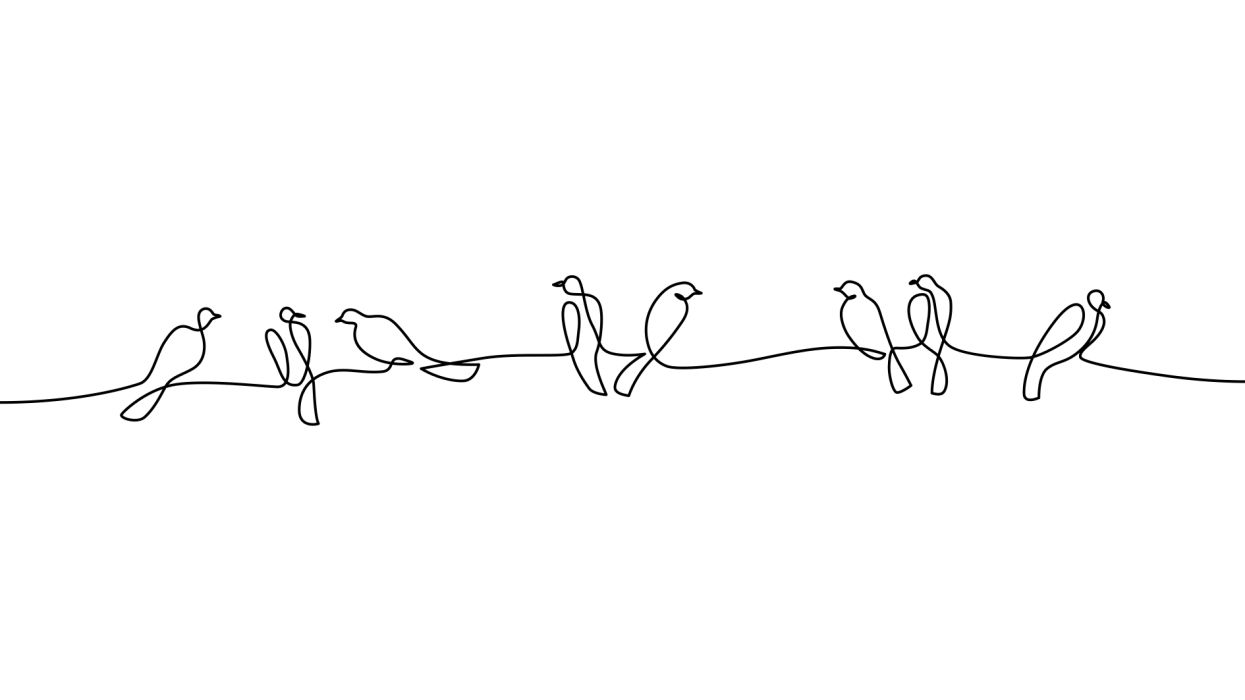Tele-Link with Shaykh ʿUbayd 6/8/2014CE – Reflections upon the Ḥadīth: ‘The Believer to a Believer is Like a Building.’
Translated by Abū ʿAbdillāh Ḥasan al-Sūmalī (hafiẓahullāh)
————————————————————————-
A beautiful lecture was given by al-Shaykh, al-’allāmah, ʿUbayd ibn ʿAbdillāh al-Jābirī ( hafiẓahullāhu Taʿālá) reflecting upon the ḥadīth of the Messenger of Allāh ( ṣallallāhu ʿalayhi wa-sallam) ‘The believer to a believer is like a building ‘ explaining the unity of Ahlussunnah wal Jamāʿah upon the Kitāb and the Sunnah, sticking together side by side; irrespective of distance their hearts remain united. Ahlussunnah are not infatuated by personalities, rather the relationships of the people of the Sunnah is for the religion, it is for the love of Allāh ( subḥānahu wa Taʿālá), and this unifies the ranks; this strengthens the ranks of the people of the Sunnah against their enemies.
————————————————————————–
So the Shaykh (hafiẓahullāhu Taʿālá), Shaykh, al waalid, ʿUbayd ibn ‘ʿAbdillāh al-Jābirī (hafiẓahullāhu Taʿālá) he started by praising Allāh (subḥānahu wa Taʿālá) as He deserves to praised and sending the peace and salutations upon the Prophet (ṣallallāhu ʿalayhi wa-sallam). He said my talk to you on this morning of yours, O my children, this morning in the United States of America, is reflections over the ḥadīth of the Prophet (ṣallallāhu ʿalayhi wa-sallam) and the ḥadīth is when the Prophet (ʿalayhis ṣalātu wa-sallam) he said ‘The believer to the believer is like a building, part of it supports the other’ this ḥadīth is collected by al Imām al Bukhārī and Imām Muslim in the authentic collections from the ḥadīth of Abū Mūsá, it was narrated by the noble Companion, (radhiyAllāhu Taʿālá ʿanhu). The Shaykh he says, so reflect firstly over the saying the Prophet (ṣallallāhu ʿalayhi wa-sallam) ‘The believer to the believer is like a building, part of it supports the other.‘ Meaning what? The believer sticks to his brother, side by side, like a building, this is the meaning of the ḥadīth, he said, so those with complete faith, Ahlussunnah wal Jamāʿah, are the best as it pertains to this matter, because they follow and implement the Sunnah of the Prophet (ṣallallāhu ʿalayhi wa-sallam). Ahlussunnah wal Jamāʿah are those who are the closest to Allāh (subḥānahu wa Taʿālá) and His Messenger (ṣallallāhu ʿalayhi wa-sallam). Ahlussunnah is the best people, no matter what distances between the believers, the believers are together by their hearts. Long distances don’t affect them, as this is only a matter of their bodies, their bodies are separate, but their hearts, and hearts are united, the believers support one another, they assist one another, they strengthen one another; they are with one another. The believer to the believer is like a mirror, the believer to the believer is like a building. He said let us take an example, he said between us and you are thousands of miles, he said, however, our news, reaches you, and your news, reaches us, so it is as if we are in one house.
He continued, he said, the Shaykh (hafiẓahullāhu Taʿālá), he continued, he said, at this point, the question arises, how do the believers support one another? Or how does a person of the Sunnah assist the person of the Sunnah? And the answer, the Shaykh he said, is achieved in different ways. He said, firstly, the first way or description is to be gentle, ar-rifq, he said the person of the Sunnah is gentle with the person of the Sunnah, he’s not harsh with them, he’s not stern with them, he does not treat the people of the Sunnah like he treats and deals with the people of innovation. So that was the first way. The second is, second way is reminding the people, if the person of the Sunnah forgets, then his brother from Ahlussunnah reminds him of that which he is forgotten. The third way and the third description, is aiding the one who is incapable or the one who is in a difficult predicament. If we find that someone from Ahlussunnah, one from Ahlussunnah is incapable of something, or they are in a difficult predicament, then Ahlussunnah, they rush to assist this individual in that particular affair, and they rush to remove the difficulty from the person of the Sunnah. The fourth way or the fourth description is pointing out the heedlessness of the one who is heedless. So the Shaykh said, it’s possible for the person of the Sunnah to be heedless about a particular affair, so if we find that this is the case with one of our brothers, then the person of the Sunnah, he rushes to point out the heedlessness of the person of the Sunnah, so that he can be aware of what he is actually heedless of, and he can be aware of this particular matter. The Shaykh he said, the fifth way or the fifth description, if the person of the Sunnah finds that his brother from the people of the Sunnah has been transgressed against, has been wronged, then his brother rushes to defend him, and mentions the one who has been wronged with good, and exposes the plots of the plotters so that the Muslims can be one like one body and one nation, even if they are from different tribes, and different nations, even if they are separated by large distances, this is one of the distinguishing qualities of the people of the Sunnah. The Shaykh he said, (hafiẓahullāh) the other distinguishing quality of the people of the Sunnah is that Ahlussunnah, their way, their speech and actions that are presented to them, that they see with two scales, the texts of the Kitāb and the Sunnah, and the second matter, the ijmāʿ’, the consensus of this Ummah. If they find that the speech or the action agrees with the Kitāb and the Sunnah, or agrees with the ijmāʿ, with the consensus, then they accept it. If they find that the speech of the action opposes these two things, then they reject it. If the person of the Sunnah finds that another person from the Sunnah and an individual from Ahlussunnah makes a mistake, then they do not accept this mistake, because a mistake that opposes the Book of Allāh and the Sunnah of the Prophet (ṣallallāhu ʿalayhi wa-sallam) and the way of the Salaf cannot be accepted. The mistake is refuted, however the honour of the individual from the people of the Sunnah is preserved of the person of the Sunnah, and he is defended and his station is maintained, however if the one who is in opposition to the Truth, and errs is a person of innovation, then their honour is not preserved, rather they are refuted sternly, and they are warned against, the person of innovation is warned against to prevent the people from being affected by him, because the person of innovation corrupts the religion of the people. The third distinguishing trait of the people of the Sunnah, is that they strive to unite the Muslims upon the Book of Allāh and the Sunnah of Prophet (ṣallallāhu ʿalayhi wa-sallam), with the way of the Salaf, they strive to unite the Muslims upon what is pleasing to Allāh (subḥānahu wa Taʿālá) and they warn against those things which cause disunity. The fourth distinguishing trait of the people of the Sunnah is that they base their actions, they build their actions upon sincerity, sincerity to Allāh (azza wa jal), and following the Sunnah of the Prophet (ṣallallāhu ʿalayhi wa-sallam) in opposition to Ahlul Bid’ah, the people of innovation, you find Ahlul Bid’ahare the people of innovation, they give a lot of details, they talk in details about al ikhlās, sincerity, however, the Shaykh, he said, they speak very vague or they totally neglect talking about following the Sunnah of the Prophet (ṣallallāhu ʿalayhi wa-sallam) so they speak in detail about sincerity, but they speak vaguely and obscurely about following the Sunnah or they neglect it all together. He said, however, Ahlussunah, they speak in detail about al ikhlās, sincerity, and likewise they speak in detail about following the Sunnah of the Prophet (ṣallallāhu ʿalayhi wa-sallam), so that the religion can be solely and sincerely for Allāh (subḥānahu wa Taʿālá) alone, without any partners, and so that the Prophet (ṣallallāhu ʿalayhi wa-sallam) can be followed in their actions.
So the Shaykh (hafiẓahullāhu Taʿālá) he continued, he said that, from the distinguishing qualities of Ahlussunnah is that when they refute the mistakes of an individual who is from them, meaning he is a person from the Sunnah, this does not prevent them from advising this individual concerning their error. So if one of them, a person of the Sunnah, makes a mistake, either through their speech or their actions, then he is to be advised by his brothers from the people of the Sunnah and he is to be loved. If he accepts this advice, and this is something that is desired, and it is hoped for, then alhamdulillāh, if he doesn’t accept the advice, the Naṣīḥah, then they are stern with him privately, and they sensor him so that he retracts his error, his mistake, na’am. So the Shaykh he said, if we find that an individual is a trouble maker, he’s an individual who is a troublemaker, a person of fitnah, he is somebody that he harms his brothers from the people of the Sunnah, through his speech or his actions, speaking about them unjustly, making false accusations about them, he is advised firstly, to fear Allāh (subḥānahu wa Taʿālá) and he is reminded about the Last Day, he’s reminded about the Hereafter, and he is warned against oppression, if he repents from this, then he is to thanked and he is to be welcomed, if he continues upon his path, he continues to harm his brothers with his speech, or actions, and he is arrogant, and he is haughty, then Ahlus sunnah, they warn against this individual publically. Ahlus sunnah warn against this individual publicly so that he might return from the harm that he inflicting upon others, if he returns from this harm and from his ways, then thank him, and commend him for that, and if he doesn’t return from his fitan, troublemaking and chaos, and the harm, then he is discarded, he’s left alone, and they do not allow him to penetrate their gatherings, meaning he is not welcome. The word of Ahlus sunnah is one. The kalimah of Ahlus sunnah is one, when they warn against someone, when Ahlus sunnah warn against an individual like this, it doesn’t cause differing amongst Ahlus sunnah, because Ahlussunnah their allegiance and dissociation, their baraa, is not around personalities, their allegiance is for Allāh, their allegiance is for Allāh, their dissociation is of Allāh. The Shaykh he said, the relationships of the people of the Sunnah is for the religion, it is for the love of Allāh (subḥānahu wa Taʿālá), and this unifies the ranks, this strengthens the ranks of the people of the Sunnah against their enemies, and the Shaykh says I’m delighted ikhwaan, I’m delighted and happy that you gather here today, na’am the brothers from Masjid Raḥmah, in New Jersey, the Shaykh is happy that we are gathered, and alhamdulillāh we’re from all over the place, as we know ikhwaan, all over America wa lillāhil hamd, and even Canada, walhamdulillāh, ikhwaan, Abū Khadījah,mā shāʾ Allāh from the UK, we have brothers from all over the place, wa lillāhil hamd, other brothers from the UK, London here, mashaaAllāh….we could go on and on…brothers from Philadelphia, Anwar, Abū al Ḥasan from Camden, we could go on, and Kashiff for Maryland,alhamdulillāh brothers from all over the place, and the (and this is from me).
The Shaykh he said, he’s delighted at this hour and likewise before this hour with the brothers from Masjid Raḥmah, and this clearly shows Ahlussunnah united, and that Ahlussunnah they don’t accept differing, they don’t accept separation, that they have one word, they are one body, and they have one rank. The believer to the believer is like a building, part of it supports the other, the Prophet (ṣallallāhu ʿalayhi wa-sallam) when he mentioned this ḥadīth, he actually put his fingers together like this, showing the relationship of the believer to the believer is like a building, the believer stands by the side of his brother, and this is the relationships, like for example a building is built brick by brick, every brick or every part is placed on the other part, until the building is complete, and this is the relationship of the believer to the believer.
The Shaykh he said, I will close (hafiẓahullāhu Taʿālá) Shaykh al waalid, al ‘allāmah, ʿUbayd ibn ʿAbdillāh al-Jābirī, (hafiẓahullāhu Taʿālá), and again ikhwaan, when we hear the words of the Shaykh, know that alhamdulillāh, this is mashaaAllāh from the senior scholars of thisUmmah, wa lillāhil hamd, na’am somebody who is senior in age and experience; seen many different things over the years, through his life, and alhamdulillāh, even just by the way that he closed, the Shaykh he wants good for all of us, from Ahlussunnah wal jamāʿah, na’am, we are like his children.
He said I close this talk with a duʿāʾʾʾ, with a supplication, I ask Allāh (azza wa jal) that he increases the strength that you have and strengthens you, he said I ask Allāh (azza wa jal)that he assists you to spread the Sunnah in your places, so that the Sunnah can spread in your places and other places, na’am, and it can become stronger, Ahlus sunnah can become ya’ani, stronger na’am. He said, it’s upon you, brothers and sisters, hayaakumAllāh, to seek the aid of Allāh (subhaaahu wa Taʿālá) and to be patient and to cooperate upon righteousness and piety, and to stay away from differing and splitting, wa jazaakumAllāhu khayran, and that was alhamdulillāh, the beautiful kalimah, lecture of the Shaykh.
Alhamdulillāh, ikhwaan, we gather around the Scholars, ikhwaan, we gather around the Scholars, that’s the difference between those individuals. People always talk about being infatuated with personalities, and na’am Ahlus sunnah, we heard it in the talk, we’re not infatuated with personalities, Ahlus sunnah, they allegiance and likewise they show dissociation for the sake of Allāh subḥānahu wa Taʿālá. So what’s one of the signs that an individual is not overcome by personality? When the ‘Ulema, the Scholars of al Islām, they give advice, they go with the ‘Ulema. Those people who are infatuated by personalities when the Scholars they speak, they start saying ‘The Shaykh doesn’t know, he doesn’t know the reality…’ instead of you spreading it, yaa ayuhal miskeen to common people that don’t know the difference between basic matters, why don’t you call the Shaykh and say ‘Yaa Shaykh, you said such and such, but I disagreed with you, yaa Shaykh’, or ‘yaa Shaykh, I believe that I know kadhaa…‘ and that’s the adab of thetaalibul ‘ilm, anyway. In matters of, ya’ani, these types of affairs, if I believe that this Shaykh…I’m a bit uncomfortable with what was said, from the etiquettes of the student of knowledge, that he doesn’t precede the Scholars, so what does he do, he doesn’t start telling the people, even his wife, even his children, even the closest of the people to him, ‘You know what, I’m not really feeling what the Shaykh…’ he doesn’t say that to anyone, what he does, if he feels it, and he’s somebody who is sincere, he contacts that Shaykh and he sits with him, why? Because many times, and the majority of the times, when you deal with Ahlul ‘Ilm, you will see that the misunderstanding is from you, what you thought, you were mistaken, you were the one who didn’t have a clear picture, you were the one that was infatuated by personalities, but the ‘aalimhas baṣīrah, the Scholar has insight, the ‘aalim he sees the fitnah before it’s coming, the jaahil, the ignorant one, he only sees the fitnah when it’s leaving. Meaning after it’s smacked him on the head, and you hear this many times, ‘akhī, I was wrong akhī…‘ yeah, well that’s what we told you, listen to the Scholars!
‘You know, I want to apologise, akhī..’ That’s why we were advising you from the beginning! It’s simple ikhwaan, we gather around the Scholars, how many fitan have we learned from,alhamdulillāh. You know if you go back to many of the fitan, you go back to Abū Muslimah, you look at the fitan with Shadeed, you look at the various fitan, alhamdulillāh, when you gather around the Scholars, alhamdulillāh, things go smoothly. When you are infatuated with a personality, that’s when you start having problems, may Allāh grant us success, ikhwaan. JazākumAllāhu khayran. May Allāh make us sincere and allows us to follow the Sunnah of Muḥammad (ṣallallāhu ʿalayhi wa-sallam), may Allāh (azza wa jal) preserve our unity, may Allāh (azza wa jal) protect us from the troublemakers.
Transcribed by Umm Yousufyaan Zeenat ibnt Aḥmad













